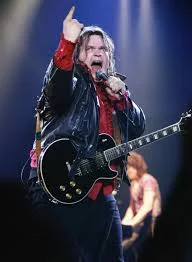Harry Mason Reid Jr., an American lawyer and politician, was a stalwart of the Democratic Party and a towering figure in the Senate for over three decades. His passing on December 28, 2021, marked the end of an era for Nevada and the nation. Reid's legacy is one of tireless public service and dedication to the people he represented.
(December 2, 1939 – December 28, 2021)
Reid began his public career as the city attorney for Henderson
, Nevada, before being elected to the Nevada Assembly in 1968. He quickly rose through the ranks of state politics, serving as Lieutenant Governor of Nevada from 1971 to 1975. Reid's political fortunes fluctuated over the years, including an unsuccessful bid for the United States Senate and a defeat in the race for mayor of Las Vegas. However, he persevered and eventually found his way to Washington, D.C., as a member of the House of Representatives in 1983.
In 1986, Reid won election to the United States Senate, where he would serve for the next 30 years. He quickly became a prominent member of the Democratic caucus and rose to the position of Senate Democratic Whip in 1999. Reid's leadership skills were put to the test in 2005 when he was chosen to lead the Senate Democratic Caucus, a position he held until his retirement in 2017. In 2007, Reid became Senate Majority Leader, a position he would hold for eight years.
As Majority Leader, Reid was a key player in the Obama administration's efforts to pass major legislation, including the Affordable Care Act, the Dodd–Frank Act, and the American Recovery and Reinvestment Act of 2009. Reid's leadership was crucial in getting these landmark bills through Congress, despite fierce opposition from Republicans. However, Reid's legacy will forever be linked to his controversial decision to use the "nuclear option" to eliminate the 60-vote requirement to end a filibuster for presidential nominations, other than nominations to the U.S. Supreme Court.
Reid's political career was marked by a fierce dedication to his constituents and a willingness to stand up for his principles, even when it meant going against his own party. He was a champion of renewable energy and worked tirelessly to bring federal funding to Nevada for renewable energy projects. Reid was also a vocal opponent of nuclear waste being stored at Yucca Mountain in Nevada and successfully blocked efforts to make it a permanent storage site.
Reid was known for his tough demeanor and no-nonsense approach to politics, but he was also a man of deep faith and family values. He was married to his wife, Landra Gould, for over 60 years and they had five children together. Reid's Catholic faith was an important part of his life and informed his political beliefs.
 Reid's retirement in 2017 marked the end of an era in Nevada and the Senate. He was succeeded as Senate Democratic leader by Chuck Schumer, who had been endorsed by Reid for the position. Reid's legacy as a champion for his constituents and a tireless public servant will live on for generations to come. He was one of only three senators to have served at least eight years as majority leader, joining the ranks of Alben W. Barkley and Mike Mansfield.
Reid's retirement in 2017 marked the end of an era in Nevada and the Senate. He was succeeded as Senate Democratic leader by Chuck Schumer, who had been endorsed by Reid for the position. Reid's legacy as a champion for his constituents and a tireless public servant will live on for generations to come. He was one of only three senators to have served at least eight years as majority leader, joining the ranks of Alben W. Barkley and Mike Mansfield.
In conclusion, Harry Reid was a towering figure in American politics who devoted his life to public service. His passing is a great loss for Nevada and the nation, but his legacy of dedication to his constituents and commitment to his principles will continue to inspire future generations of leaders. Harry Reid will be remembered as a true statesman and a champion for the people.
To see more of who died in 2012 click here






















